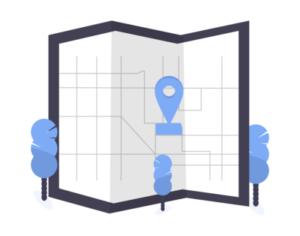No products in the cart.
What is personalized content?
Personalized content is a powerful tool that allows businesses to connect with their audience on a deeper level. It involves tailoring the content to meet the specific needs and interests of individual users. By analyzing data such as browsing history, demographics, and preferences, businesses can create customized experiences that resonate with their customers. This not only enhances engagement but also increases the likelihood of conversion and customer loyalty. Personalized content goes beyond simply addressing a user by their name; it is about delivering relevant and valuable information that speaks directly to their unique interests and challenges. With the rise of technology and data analytics, businesses now have the ability to create highly targeted and personalized content at scale, revolutionizing the way they communicate with their audience.
The importance of personalized content in marketing
Personalized content is a game-changer in the world of marketing. By tailoring your content to individual customers, you can create a more meaningful and engaging experience that resonates with their specific needs and preferences. Gone are the days of generic mass marketing; today’s consumers expect a personalized touch. Not only does personalized content grab attention and increase engagement, but it also builds trust and loyalty. By showing that you understand your customers on a personal level, you can establish a deeper connection and foster long-term relationships. So, whether it’s through personalized emails, targeted ads, or customized product recommendations, harnessing the power of personalized content is a must for any modern marketer.
How personalized content can enhance customer experience
Personalized content has the power to greatly enhance the customer experience. By tailoring content to individual preferences and needs, businesses can create a more engaging and relevant experience for their customers. Personalization can take many forms, from personalized product recommendations based on previous purchases to customized email newsletters that deliver content suited to each subscriber’s interests. When customers feel like a brand understands them and is catering to their specific needs, they are more likely to feel valued and develop a stronger connection to the brand. This can lead to increased customer loyalty, higher conversion rates, and ultimately, a more successful business.
The role of data in creating personalized content
Data plays a vital role in creating personalized content that resonates with your audience. By collecting and analyzing data, you can gain valuable insights into your customers’ preferences, behaviors, and interests. This information allows you to tailor your content to their specific needs, increasing engagement and driving conversions. With the power of data, you can deliver targeted messages, recommend relevant products or services, and create a more personalized user experience. By harnessing the potential of data-driven personalization, you can build stronger relationships with your audience and achieve better results for your business.
Different types of personalized content
Personalized content is a powerful tool that can greatly enhance the effectiveness of your marketing strategy. There are various types of personalized content that you can use to engage your audience and deliver a tailored experience. One type is personalized emails, where you can address your recipients by their names and send them content that is relevant to their interests and preferences. Another type is personalized recommendations, where you analyze user data to suggest products or services that are likely to appeal to each individual. Additionally, personalized landing pages can be created to provide a customized browsing experience based on the user’s previous interactions with your website. By leveraging these different types of personalized content, you can create a more personalized and engaging experience for your audience, ultimately leading to higher conversion rates and customer satisfaction.
Strategies for creating effective personalized content
Creating effective personalized content is essential in today’s digital landscape. By tailoring content to the specific needs and interests of individual users, businesses can increase engagement, build customer loyalty, and drive conversions. One strategy for creating personalized content is to leverage user data, such as browsing history and past purchases, to deliver relevant recommendations and offers. Another effective approach is to segment your audience based on demographics, interests, or behavior, and create targeted content that speaks directly to each segment. Additionally, using dynamic content that adapts based on user preferences or actions can further enhance personalization. By implementing these strategies, businesses can harness the power of personalized content to connect with their audience on a deeper level and achieve their marketing goals.
Examples of successful personalized content campaigns
Successful personalized content campaigns have become increasingly popular in the digital marketing world, and for good reason. By tailoring content to individual users based on their preferences, interests, and behaviors, companies can create a more meaningful and engaging experience for their audience. One example of a successful personalized content campaign is Netflix’s recommendation system, which uses algorithms to analyze user data and suggest movies and TV shows that are likely to be of interest. Another example is Amazon’s personalized product recommendations, which are based on a user’s browsing and purchase history. These campaigns not only increase customer satisfaction and loyalty, but they also drive higher conversion rates and revenue for businesses.
Tools and technologies for implementing personalized content
When it comes to implementing personalized content, there are a variety of tools and technologies available to help businesses deliver tailored experiences to their customers. One popular tool is a customer relationship management (CRM) system, which allows businesses to collect and analyze data on their customers’ preferences and behaviors. This information can then be used to create personalized content that resonates with each individual. Another useful technology is marketing automation software, which enables businesses to automate the delivery of personalized content based on predetermined triggers or actions. By leveraging these tools and technologies, businesses can create highly targeted and relevant content that not only engages customers but also drives conversions and loyalty.
Measuring the success of personalized content
Measuring the success of personalized content is essential to understanding its impact and effectiveness. By analyzing key metrics such as click-through rates, conversion rates, and engagement levels, companies can gain valuable insights into how well their personalized content is resonating with their target audience. Additionally, tracking the ROI of personalized content allows businesses to determine its cost-effectiveness and make data-driven decisions on future content strategies. Understanding the power of personalized content goes beyond just creating tailored experiences for customers; it involves continuously evaluating and optimizing campaigns to deliver the most impactful results.
Conclusion: Harnessing the power of personalized content for business success
Harnessing the power of personalized content is essential for businesses looking to thrive in today’s digital landscape. By tailoring content to individual customers, businesses can create a more engaging and relevant experience, increasing customer satisfaction and loyalty. Personalized content allows businesses to connect with their audience on a deeper level, addressing their unique needs and interests. This approach not only enhances the customer experience but also drives conversions and boosts sales. With the vast amount of data available, businesses can utilize advanced analytics and machine learning algorithms to deliver personalized content at scale. By understanding the preferences, behaviors, and demographics of their target audience, businesses can create highly targeted and effective marketing campaigns, ensuring they stay ahead of the competition.


